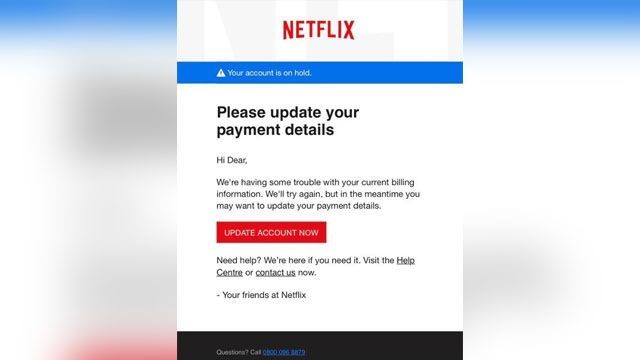
The COVID-19 pandemic has caused scammers to launch new ways to SCAM you! Don’t fall for it!
FBI WARNINGS
The FBI has issued a Public Service Announcement providing you with guidance on how to protect yourself.
The FBI advises to do research BEFORE:
- Clicking on links that provide COVID-19 info
- Donating to charities online or through social media
- Contributing to a crowdfunding campaign
- Purchasing products online
- Giving personal information in order to receive money or benefits.
Be on the lookout for:
- Fake CDC emails
- Phishing emails
- Counterfiet treatments or equipment
What is Phishing?
The Federal Trade Commission provides the following guidance on how to recognize phishing:
Scammers use email or text messages to trick you into giving them your personal information. They may try to steal your passwords, account numbers, or Social Security numbers. If they get that information, they could gain access to your email, bank, or other accounts. Scammers launch thousands of phishing attacks like these every day — and they’re often successful. The FBI’s Internet Crime Complaint Center reported that people lost $57 million to phishing schemes in one year.
Scammers often update their tactics, but there are some signs that will help you recognize a phishing email or text message.
Phishing emails and text messages may look like they’re from a company you know or trust. They may look like they’re from a bank, a credit card company, a social networking site, an online payment website or app, or an online store.
Phishing emails and text messages often tell a story to trick you into clicking on a link or opening an attachment. They may
- say they’ve noticed some suspicious activity or log-in attempts
- claim there’s a problem with your account or your payment information
- say you must confirm some personal information
- include a fake invoice
- want you to click on a link to make a payment
- say you’re eligible to register for a government refund
- offer a coupon for free stuff
Here’s a real world example of a phishing email.

Imagine you saw this in your inbox. Do you see any signs that it’s a scam? Let’s take a look.
- The email looks like it’s from a company you may know and trust: Netflix. It even uses a Netflix logo and header.
- The email says your account is on hold because of a billing problem.
- The email has a generic greeting, “Hi Dear.” If you have an account with the business, it probably wouldn’t use a generic greeting like this.
- The email invites you to click on a link to update your payment details.
While, at a glance, this email might look real, it’s not. The scammers who send emails like this one do not have anything to do with the companies they pretend to be. Phishing emails can have real consequences for people who give scammers their information. And they can harm the reputation of the companies they’re spoofing.
IRS WARNINGS
The IRS has also issued a warning about Coronavirus-related scams related to your economic impact payment.
The IRS reminds taxpayers that scammers may:
- Emphasize the words “Stimulus Check” or “Stimulus Payment.” The official term is economic impact payment.
- Ask the taxpayer to sign over their economic impact payment check to them.
- Ask by phone, email, text or social media for verification of personal and/or banking information saying that the information is needed to receive or speed up their economic impact payment.
- Suggest that they can get a tax refund or economic impact payment faster by working on the taxpayer’s behalf. This scam could be conducted by social media or even in person.
- Mail the taxpayer a bogus check, perhaps in an odd amount, then tell the taxpayer to call a number or verify information online in order to cash it.